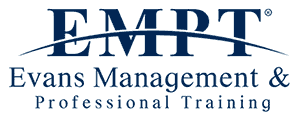National standards in foster care
- NMS 3.8. Foster carers must receive training in promoting positive care and control of children, including training in de-escalating problems and disputes
- NMS 4.6. Foster carers must receive training around appropriate safer-care practice, including skills to care for children who have been abused
- NMS 6.7. Foster carers must receive sufficient training on health and hygiene issues and first aid
- NMS 12.3. Training provided for foster carers should include appropriate training and support to foster carers caring for young people who are approaching adulthood
- NMS 15.1. If a fostering household is considered to be a potential match for a child, if gaps in training are identified in the foster carer/s development, the fostering service should work with the responsible authority to ensure the placement plan sets out any additional training, resource or support required
- NMS 20.2. All foster carers, including all members of a household who are approved
foster carers, are supported to achieve the Children’s Workforce Development Council’s Training, Support and Development Standards for Foster Care - NMS 20.4. Foster carers must maintain an ongoing training and development portfolio which demonstrates how they are meeting the skills required of them by the fostering service
- NMS 20.5. Foster carers’ personal development plans set out how they will be supported to undertake ongoing training and development that is appropriate to their development needs and experience
- NMS 20.6. The reviews of each carers approval must include an appraisal of performance against clear and consistent standards set by the agency, and consideration of training and development needs, which are documented in the review report. The foster carer’s personal development plan is reviewed and the effectiveness of training and development received is evaluated
- NMS 20.8. Support and training is made available to foster carers, including hard to reach carers
- NMS 20.9. Appropriate training on safer caring is provided for all members of the foster household, including young people of sufficient age and understanding, and ensures that foster carers understand how safer caring principles should be applied in a way which meets the needs of individual children
- NMS 20.10. All training fits within a framework of equal opportunities and anti-discriminatory practice and is organised to encourage and facilitate attendance by foster carers
- NMS 20.11. In cases where a foster carer moves to a new fostering service, details of the development and training which he or she has undertaken, and of the extent to which the agreed training and development standards have been met, are made available on request to the new provider, and the foster carer is able to take their training and development portfolio with them
- NMS 23.1. There is a good quality learning and development programme, which includes induction, post-qualifying and in-service training, that staff and volunteers are supported to undertake. The programme equips them with the skills required to meet the needs of the children, keeps them up-to-date with professional, legal and practice developments and reflects the policies, legal obligations and business needs of the fostering service
- NMS 23.2. The learning and development programme is evaluated for effectiveness at least annually and is updated where necessary
- NMS 23.3. New staff and volunteers undertake the Children’s Workforce Development Council’s induction standards, commencing within 7 working days of starting their employment and being completed within six months
- NMS 23.4. All social workers and other specialists (e.g. medical, legal, educationalists, psychologists, therapists) are professionally qualified and,where applicable, registered by the appropriate professional body. They are appropriately trained to work with children, their families and foster carers, and have a good understanding of foster care and the policies and purpose of the fostering service.
- NMS 23.5. Assessment and appraisal of all staff involved in fostering work takes account of identified skills needed for particular roles and is used to identify individuals’ learning and development needs.
- NMS 23.6. Any staff involved in assessing the suitability of persons to be foster carers are social workers, have experience of foster care and family placement work and are trained in assessment. Social work students and social workers who do not have the relevant experience,only carry out assessments under the supervision of an appropriately experienced social worker, who takes responsibility for the assessment
- NMS 23.9. Each person on the (panel) central list is given induction training which is completed within 10 weeks of joining the central list
- NMS 23.10. Each person on the central list is given the opportunity of attending an annual joint training day with the fostering service’s fostering staff
- NMS 23.11. Each person on the central list has access to appropriate training and skills development and is kept abreast of relevant changes to legislation and guidance

